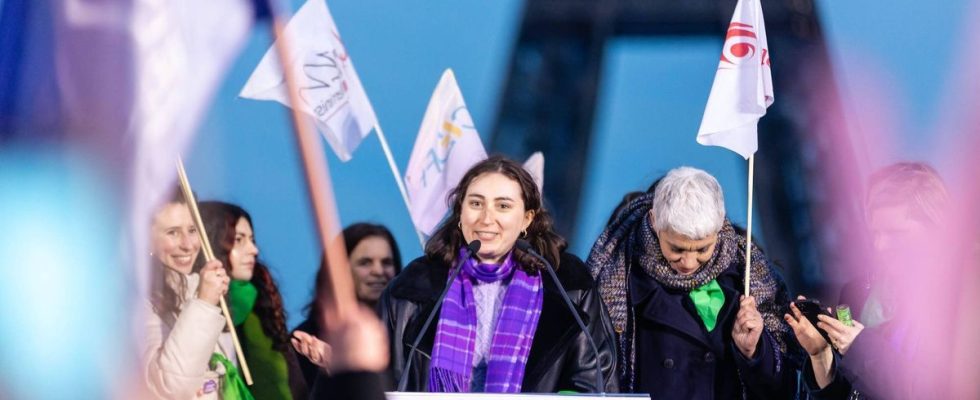Published on
Updated
Reading 3 min.
A historic decision, freedom of recourse to abortion was enshrined in the French constitution this Monday, March 4 in Versailles. A feminist victory that we can rejoice in, but which should not hide the existing healthcare difficulties. Alice Bordaçarre, head of the women’s rights and gender equality office at FIDH (International Federation for Human Rights) explains to us the upcoming challenges.
“French pride, universal message”. This is how Emmanuel Macron greeted the vote to include guaranteed freedom of abortion in the French Constitution on March 4. With 780 parliamentarians voting for and 72 against, a large majority have written an important new page in the history of women.
France, the first country to include abortion in its constitution.
France thus becomes the first country to include freedom of recourse to abortion in its constitution in such an explicit manner. A victory which echoes a story that began in 1975, when the Veil law authorized abortion in France. “We have a moral debt” towards all the women who have suffered in their flesh from illegal abortions, sometimes to the point of losing their lives. We are haunted by the suffering and by the memory of so many women who, for decades, suffered from not being able to be free. insisted Prime Minister Gabriel Attal, welcoming the “the culmination of a long fight” punctuated by an expected ovation. But has the fight been won for good here?
“Guaranteed” freedom, an important nuance here
We asked the question to Alice Bordaçarre, head of the women’s rights and gender equality office at FIDH (International Federation for Human Rights). According to her, we must of course rejoice at this important decision which comes at a time when abortion is in danger throughout the world. “And it is not only feminist organizations and NGOs who say this, it is also the opinion of the Council of State and the CNCDH (national consultative commission on human rights) which attest to the need for ‘grant supra-legislative protection to this right or rather to this freedom’ she responds to the few voices in the media who were offended by a real absence of threat.
However, the expert recalls that a “right” guaranteeing equal access to abortion for all had been requested, to which the Senate preferred the term “freedom” of recourse to abortion. “The addition of the term “guarantee” granted by compromise, brings additional protection to abortion, the term freedom would not have been enough. she specifies.
Access to abortion must continue to improve on French soil
Although the victory is important, the fight for freer access to abortion has not been entirely won and certain issues still need to be worked on. Thus, the lawyer evokes a network that is still too uncertain, and women who do not all have the same chances in 2024, depending on where they live.
“There are significant disparities on the territory, in the regions and especially overseas. In 2019, the 14 gynecologists in Cayenne had all asserted their conscience clause to practice abortion. Only one practitioner in Kourou did it, an hour’s drive away. Reality is also that”. A reality that also affects France, where some women have to travel more than 50 km to get an appointment, which complicates things and the freedom mentioned.
The other obstacle is therefore this famous double conscience clause, which doctors can invoke if they do not want to perform an abortion. “But contrary to what one might think, removing it is not a priority. No, the priority is to regulate the use of this conscience clause, to regulate the health service accordingly. Concretely, this means that when a majority of doctors assert their conscience clause, the ARS must ensure that other practitioners in the same territory can see women.
“We still need to organize the public service, but it remains difficult. In France, there is no national file listing doctors who are opposed to abortion. There is no obligation to declare it and “register, unlike other countries like Italy. However, it would be useful for women to be able to check before going to see a practitioner that the person is not exercising their conscience clause” describes the expert.
A clearer inventory which is still missing today and which would make it possible to see where doctors or abortion centers are lacking in the territory, so that women who require care do not travel tens of kilometers needlessly fear in my stomach.
